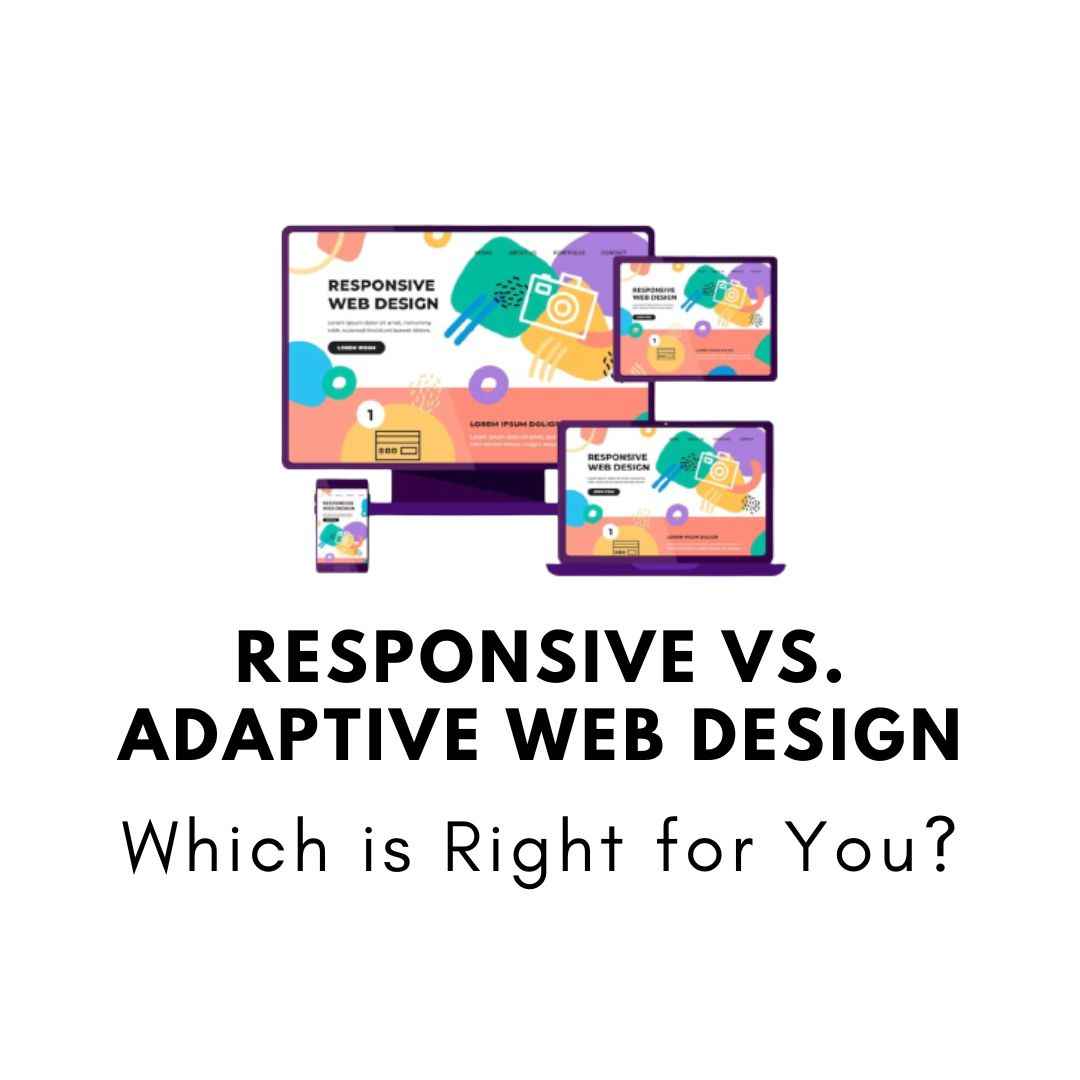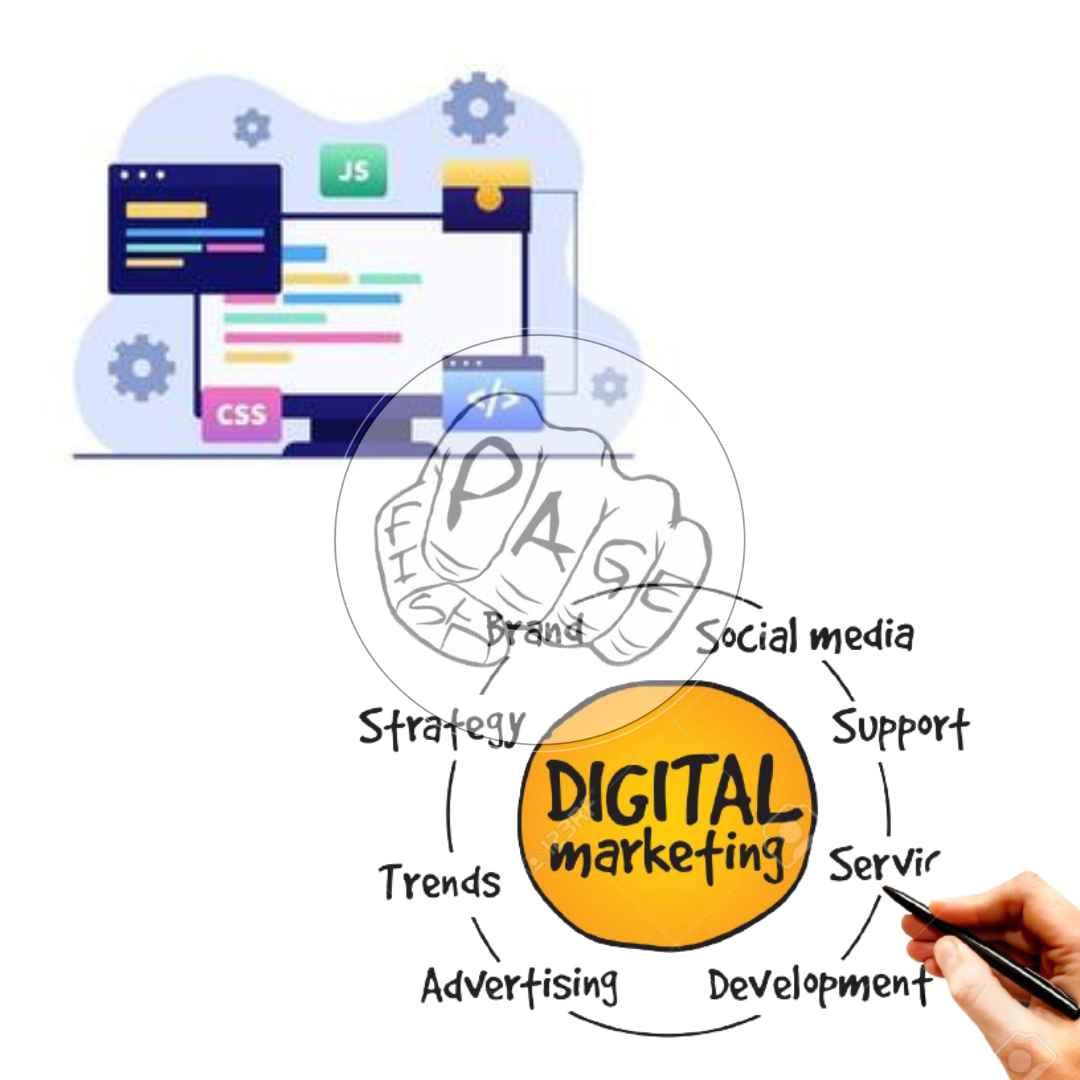Responsive vs. Adaptive Web Design: Which is Right for You?
Explore the battle between responsive and adaptive web design. Discover the pros, cons, and use cases for each approach to make an informed decision for your website.
Introduction
In the ever-evolving realm of web design, where trends shift as swiftly as a cheetah chasing its prey, staying ahead of the curve is crucial. One of the age-old debates in this arena is the battle between responsive and adaptive web design. It's like choosing between a Swiss army knife and a precision toolset. Each has its unique strengths and applications, but which one is the right fit for your website?
Let's embark on a thrilling journey through the digital landscape to unravel the mysteries of responsive and adaptive web design. By the end of this adventure, you'll be equipped with the knowledge to make an informed decision for your website. So, tighten your seatbelt, because we're about to navigate the winding roads of web design!
Responsive Web Design: The Jack-of-All-Trades
What is Responsive Web Design?
Responsive web design is like the MacGyver of the digital world. It's the art of creating websites that adapt to various screen sizes, from the colossal desktop monitors to the pocket-sized wonders we call smartphones. This design philosophy uses a single codebase to ensure that your website looks and functions seamlessly, regardless of the device it's accessed on.
Pros of Responsive Web Design
1. Universality
- It's a one-size-fits-all solution: With responsive design, you don't need to create multiple versions of your website for different devices. That's a massive time and money saver right there!
2. Improved SEO
- Google loves it: Responsive websites tend to rank higher in search engine results. Google's algorithm favors mobile-friendly sites, so responsiveness can give your SEO a boost.
3. Ease of Maintenance
- Less hassle, fewer bugs: Managing a single codebase is simpler and reduces the chances of bugs and inconsistencies across platforms.
4. Future-Proofing
- Ready for the unknown: As new devices hit the market, your responsive website will gracefully adapt without requiring a complete overhaul.
Cons of Responsive Web Design
1. Limited Control
- Jack of all trades, master of none: Responsive design may not offer the level of customization and control that adaptive design can provide.
2. Performance Trade-offs
- Speed vs. versatility: Achieving responsiveness can sometimes lead to performance trade-offs, as the same content has to load on all devices.
Adaptive Web Design: Tailoring for Excellence
What is Adaptive Web Design?
Adaptive web design is your bespoke tailored suit in the world of web development. Unlike responsive design, it doesn't rely on a single layout that adapts to different screens. Instead, it offers a range of predefined layouts, each optimized for specific device categories. When a user accesses your site, the system selects the most suitable layout for their device.
Pros of Adaptive Web Design
1. Precision and Control
- Tailored perfection: Adaptive design allows for precise control over the user experience on different devices. You can optimize content and features for each screen size.
2. Enhanced Performance
- Speedy Gonzales: By serving optimized layouts, adaptive design can deliver faster loading times and a smoother user experience.
3. Targeted Content
- Personalization: You can create device-specific content, delivering a more personalized experience to users based on their device type.
Cons of Adaptive Web Design
1. Complexity
- Not for the faint-hearted: Building and maintaining multiple layouts can be complex and time-consuming, potentially requiring a larger development team.
2. Cost
- Dollars and cents: The increased complexity of adaptive design often translates into higher development costs compared to responsive design.
Which One is Right for You? Let's Find Out!
Questions to Ask Yourself
Before making a decision, consider these questions to determine your web design needs:
-
What's Your Budget? Are you on a shoestring budget, or can you afford the luxury of adaptive design?
-
How Important is Customization? Do you need precise control over the user experience, or are you okay with a more universal approach?
-
What is Your Target Audience? Who are your users, and what devices do they predominantly use to access your site?
-
How Will You Handle Future Changes? Are you prepared to adapt your website continually, or do you prefer a "set it and forget it" approach?
-
What Are Your Performance Expectations? Do you prioritize speed and performance, or is versatility your main concern?
Responsive vs. Adaptive: Use Cases
Let's break it down further with some real-world scenarios:
1. The Information Hub
Scenario: You're running a blog or news website with a diverse audience accessing your content on various devices.
- Responsive Design: This is your go-to choice. It ensures that your articles and news pieces are easily accessible to everyone, regardless of their device.
2. The E-commerce Empire
Scenario: You have a booming e-commerce platform, and you want to offer the best shopping experience to your users.
- Adaptive Design: Investing in adaptive design can help you tailor the shopping experience for users on desktops, tablets, and smartphones, leading to higher conversion rates and happier customers.
3. The Startup Dream
Scenario: You're a startup with limited resources, and you need to get your website up and running quickly.
- Responsive Design: Start with a responsive design. It's cost-effective and can help you establish your online presence without breaking the bank.
Conclusion: The Final Verdict
Responsive vs. adaptive web design—it's a showdown of epic proportions, like a digital gladiator battle for the ages. The right choice ultimately depends on your unique circumstances and goals. Let's wrap it up with some parting wisdom:
-
Choose Responsive Design If: You're on a budget, need a quick solution, and want your content accessible across all devices without too much customization.
-
Opt for Adaptive Design If: You have the resources for a more tailored experience, want better performance, and are willing to invest in long-term success.
Remember, there's no one-size-fits-all answer. It's like choosing between a comfy pair of sneakers and a snazzy pair of high heels—what's right for you depends on where you're headed and how you want to get there. So, embark on your web design journey with confidence, armed with the knowledge of responsive and adaptive design. Your website's destiny is in your hands—make it a stylish one!
Share This Post
Related Articles
Website Designing and Development Company in Korba
Are you looking for a website designing and development company in Korba? If yes, then you have come to the right place. We are a team of experienced and creative web designers and developers who can help you create a stunning and functional website for your business. Whether you need a simple landing page, an e-commerce store, a blog, or a custom web application, we can handle it all. We use the latest technologies and best practices to ensure that your website is fast, secure, and user-friendly. Contact us today to get a free quote and consultation for your website project.
Why is DSA Important in Web Development?
Data Structures and Algorithms (DSA) are important in web development because they help developers to design efficient and scalable applications. Data structures are ways of organizing and storing data, such as arrays, lists, stacks, queues, trees, graphs, etc. Algorithms are steps or rules for solving problems, such as sorting, searching, traversing, etc. By choosing the right data structures and algorithms for different tasks, web developers can optimize the performance, memory usage, security, and user experience of their applications. For example, using a hash table can speed up the lookup of user data, using a binary search tree can improve the sorting of products by price, using a breadth-first search algorithm can find the shortest path between two web pages, etc. Therefore, DSA is an essential skill for web development.
Elevate Your Web Development and Digital Marketing Game with PAGEFIST
Discover how PAGEFIST, a leading web development company, can supercharge your web presence and digital marketing efforts. Explore industry-specific expertise and cutting-edge services!
Full-Stack vs MEAN Stack vs MERN Stack: The Right Technology Stack for You in 2024
Explore the differences and advantages of Full-Stack, MEAN Stack, and MERN Stack for web development in 2024. Make an informed decision to ensure the success of your projects.
Web Development: Top Tools for Beginners
Web development is a broad and dynamic field that requires constant learning and updating of skills. If you are a beginner who wants to start your web development journey, you might be overwhelmed by the number of tools available. However, you don't need to master them all to create a functional and attractive website. Here are some of the top tools for beginners that can help you with web development
Related FAQ
No related FAQ.
Say Hello
To Your Dream




